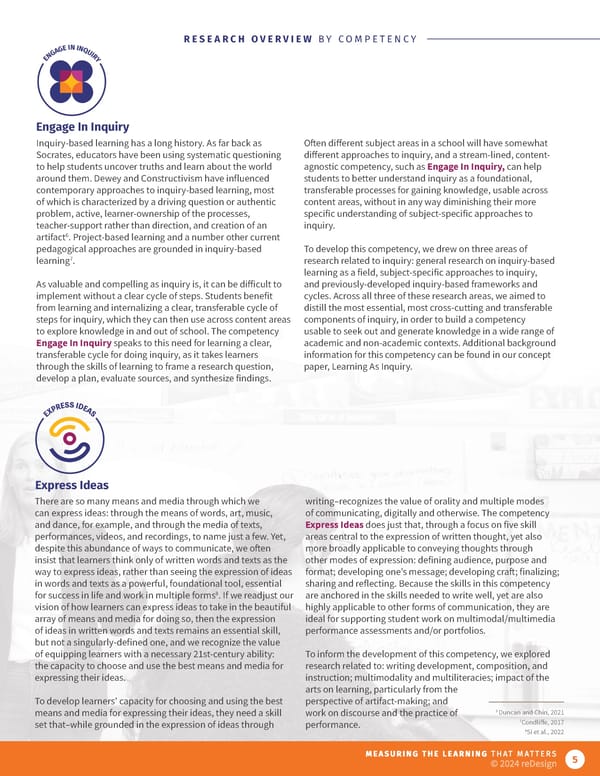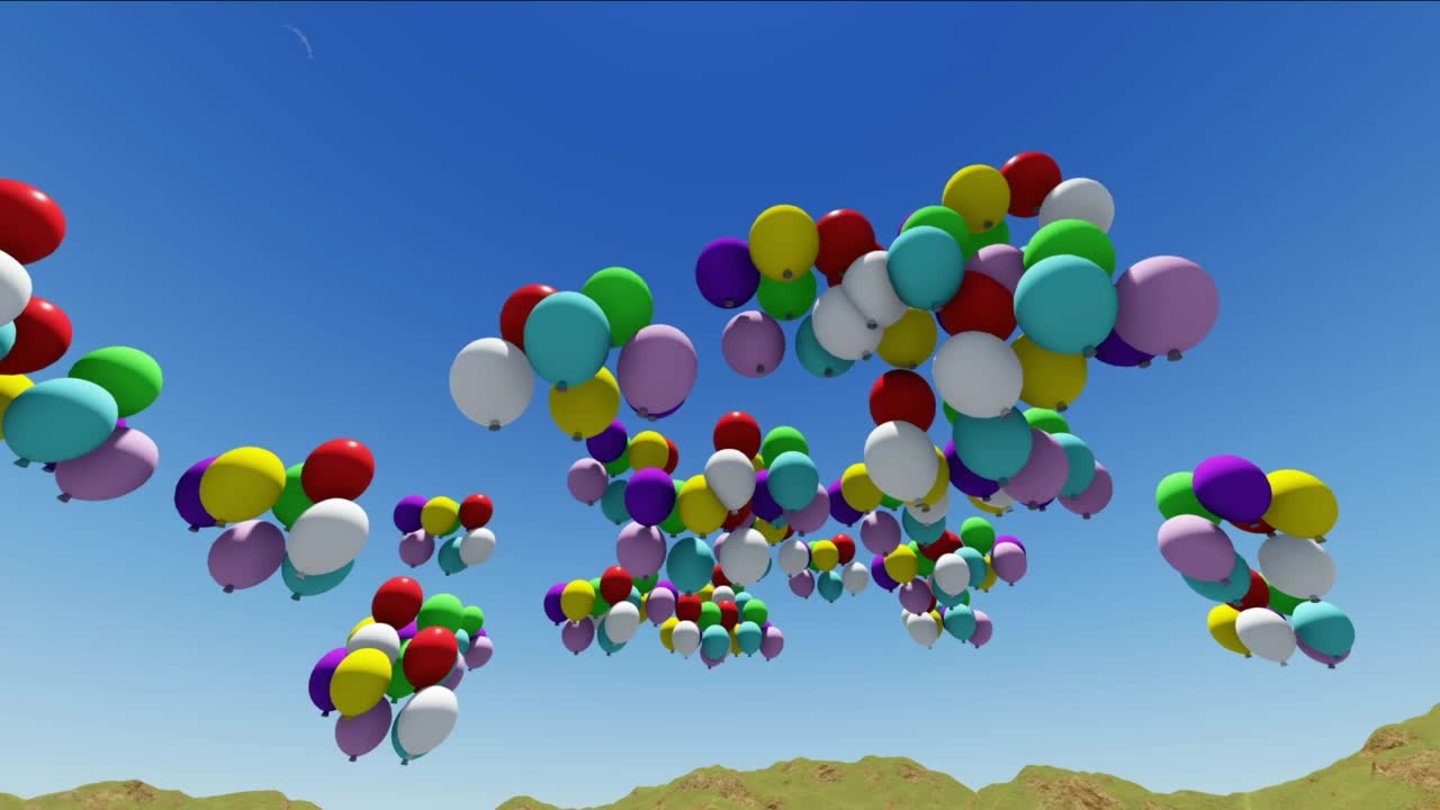RESEARCH OVERVIEW BY COMPETENCY Engage In Inquiry Inquiry-based learning has a long history. As far back as O昀琀en di昀昀erent subject areas in a school will have somewhat Socrates, educators have been using systematic questioning di昀昀erent approaches to inquiry, and a stream-lined, content- to help students uncover truths and learn about the world agnostic competency, such as Engage In Inquiry, can help around them. Dewey and Constructivism have influenced students to better understand inquiry as a foundational, contemporary approaches to inquiry-based learning, most transferable processes for gaining knowledge, usable across of which is characterized by a driving question or authentic content areas, without in any way diminishing their more problem, active, learner-ownership of the processes, specific understanding of subject-specific approaches to teacher-support rather than direction, and creation of an inquiry. 6 artifact . Project-based learning and a number other current pedagogical approaches are grounded in inquiry-based To develop this competency, we drew on three areas of 7 learning . research related to inquiry: general research on inquiry-based learning as a field, subject-specific approaches to inquiry, As valuable and compelling as inquiry is, it can be di昀昀icult to and previously-developed inquiry-based frameworks and implement without a clear cycle of steps. Students benefit cycles. Across all three of these research areas, we aimed to from learning and internalizing a clear, transferable cycle of distill the most essential, most cross-cutting and transferable steps for inquiry, which they can then use across content areas components of inquiry, in order to build a competency to explore knowledge in and out of school. The competency usable to seek out and generate knowledge in a wide range of Engage In Inquiry speaks to this need for learning a clear, academic and non-academic contexts. Additional background transferable cycle for doing inquiry, as it takes learners information for this competency can be found in our concept through the skills of learning to frame a research question, paper, Learning As Inquiry. develop a plan, evaluate sources, and synthesize findings. Express Ideas There are so many means and media through which we writing–recognizes the value of orality and multiple modes can express ideas: through the means of words, art, music, of communicating, digitally and otherwise. The competency and dance, for example, and through the media of texts, Express Ideas does just that, through a focus on five skill performances, videos, and recordings, to name just a few. Yet, areas central to the expression of written thought, yet also despite this abundance of ways to communicate, we o昀琀en more broadly applicable to conveying thoughts through insist that learners think only of written words and texts as the other modes of expression: defining audience, purpose and way to express ideas, rather than seeing the expression of ideas format; developing one’s message; developing cra昀琀; finalizing; in words and texts as a powerful, foundational tool, essential sharing and reflecting. Because the skills in this competency 8 for success in life and work in multiple forms . If we readjust our are anchored in the skills needed to write well, yet are also vision of how learners can express ideas to take in the beautiful highly applicable to other forms of communication, they are array of means and media for doing so, then the expression ideal for supporting student work on multimodal/multimedia of ideas in written words and texts remains an essential skill, performance assessments and/or portfolios. but not a singularly-defined one, and we recognize the value of equipping learners with a necessary 21st-century ability: To inform the development of this competency, we explored the capacity to choose and use the best means and media for research related to: writing development, composition, and expressing their ideas. instruction; multimodality and multiliteracies; impact of the arts on learning, particularly from the To develop learners’ capacity for choosing and using the best perspective of artifact-making; and 6 means and media for expressing their ideas, they need a skill work on discourse and the practice of Duncan and Chin, 2021 7 set that–while grounded in the expression of ideas through performance. Condli昀昀e, 2017 8Si et al., 2022 5
 Dig into the Why Page 4 Page 6
Dig into the Why Page 4 Page 6
